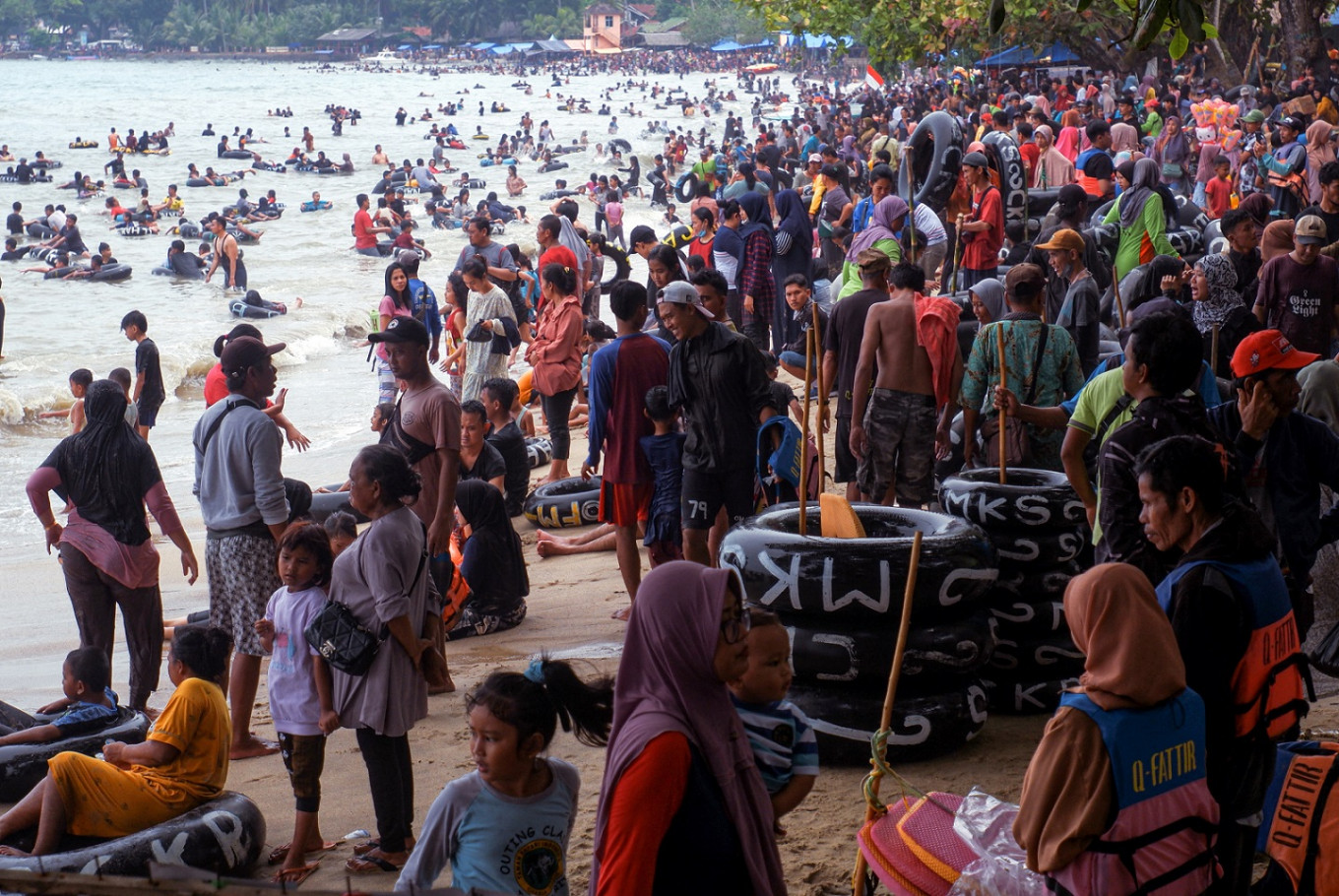Indonesia detects first four cases of Omicron subvariants BA.4, BA.5
Change Size

I
ndonesia announced on Friday its first cases of the highly contagious Omicron subvariants BA.4 and BA.5 as the country starts to see an uptick in transmission following the Idul Fitri holiday season last month, which saw tens of millions of people traveling across the archipelago.
Health Ministry spokesperson Mohammad Syahril said that the ministry had found one case of the BA.4 subvariant and three cases of the BA.5 subvariant, all linked to an international event in Bali.
"The patients, one Indonesian and three foreigners, had all been fully vaccinated, one patient had even been vaccinated four times," Syahril said in a press conference on Friday.
"Three patients are asymptomatic and one is suffering mild symptoms, health authorities have conducted swift tracing and testing of their close contacts," he added.
The BA.4 and BA.5 subvariants were first detected in South Africa earlier this year and so far they have been detected in 58 and 63 countries, respectively.
Preliminary data suggest that they are more contagious compared with the original strain of the Omicron variant and they have contributed to a surge of COVID-19 infections in several countries, including South Africa, Chile and Portugal.
Studies have found that the BA.4 and BA.5 subvariants can evade immunity from prior infection and vaccination although there is no evidence indicating that they cause more severe symptoms.
Despite BA.4 and BA.5's high transmissibility, Syahril said the recent increase in the country's caseload was not due to the spread of the new subvariants, rather than being caused by high public mobility during the holidays.
Indonesia's COVID-19 weekly caseload has increased by 89 percent in two weeks from 1,794 cases to 3,394 cases while active cases rose by 17 percent from 3,715 cases to 4,341.
Despite the spike, Syahril urged people not to panic. "As per indicators from the World Health Organization [WHO] COVID-19 transmission in Indonesia is still in level 1, meaning that it is still under control," he said.
According to Syahril, Indonesia's positivity rate stood at 1.1 percent lower than the WHO's benchmark of 5 percent.
Meanwhile, community transmissions remained at one per 100,000 people per week, deaths stood at 0.01 per 100,000 per week and hospitalizations were 0.11 per 100,000 per week.
All of these figures are lower than the WHO's threshold of under control transmission of less than 20 cases, five hospitalizations and one death per 100,000 people per week.
Syahril said that the BA.4 and BA.5 subvariants might cause another surge of infections but stressed that it would not be likely cause an increase in deaths and hospitalizations.
Relaxation
Earlier this week, through a Home Ministry instruction, the government lowered pandemic curbs in all cities and regencies but one in West Papua – Bintuni Bay regency – to level 1, the lowest in the four-tiered public activity restriction (PPKM) system.
The government says it has no plan to scrap the PPKM altogether, saying it would monitor the health situation before making any decisions.
This is the first time since the pandemic started that almost all Indonesians are allowed to conduct their activities in a manner almost similar to pre-pandemic levels, as all public spaces, offices and businesses are now allowed to operate at full capacity under the PPKM level 1 arrangement.
Unlike previous instances, the newest set of coronavirus restrictions will be in effect for the next four weeks – a longer timeframe than the previous bi-weekly arrangement.
Authorities said they would continue to adjust COVID-19 curbs depending on the situation.
Experts have largely agreed with the government’s cautious approach, saying the country needs to maintain its vigilance against COVID-19 as long as the pandemic is not over.
Epidemiologist Dicky Budiman of Griffith University in Australia said Indonesia should not only keep tabs on its own COVID-19 situation but also monitor global conditions, particularly as past instances have shown that new foreign variants often put the country at risk of a case spike.
“[The global situation] is something the government should watch out for before it starts considering abolishing the PPKM system,'' he said.
While easing mobility curbs might be relatively safe, he said that the PPKM system remained integral to the country’s pandemic-handling strategy because it also outlined targets for testing and tracing and vaccination by local administrations.
Epidemiologist Riris Andono of Gadjah Mada University was of the same opinion, saying the government needed to maintain the rate of testing and tracing, regardless of whether it decided to scrap the PPKM system.
“The PPKM system is mainly about mobility restrictions. So, it’s only logical that restrictions – whether still under the PPKM regime or any new ones coming after it – are eased if cases are low. But that doesn’t mean that COVID-19 surveillance should be cut back,” Riris said.









